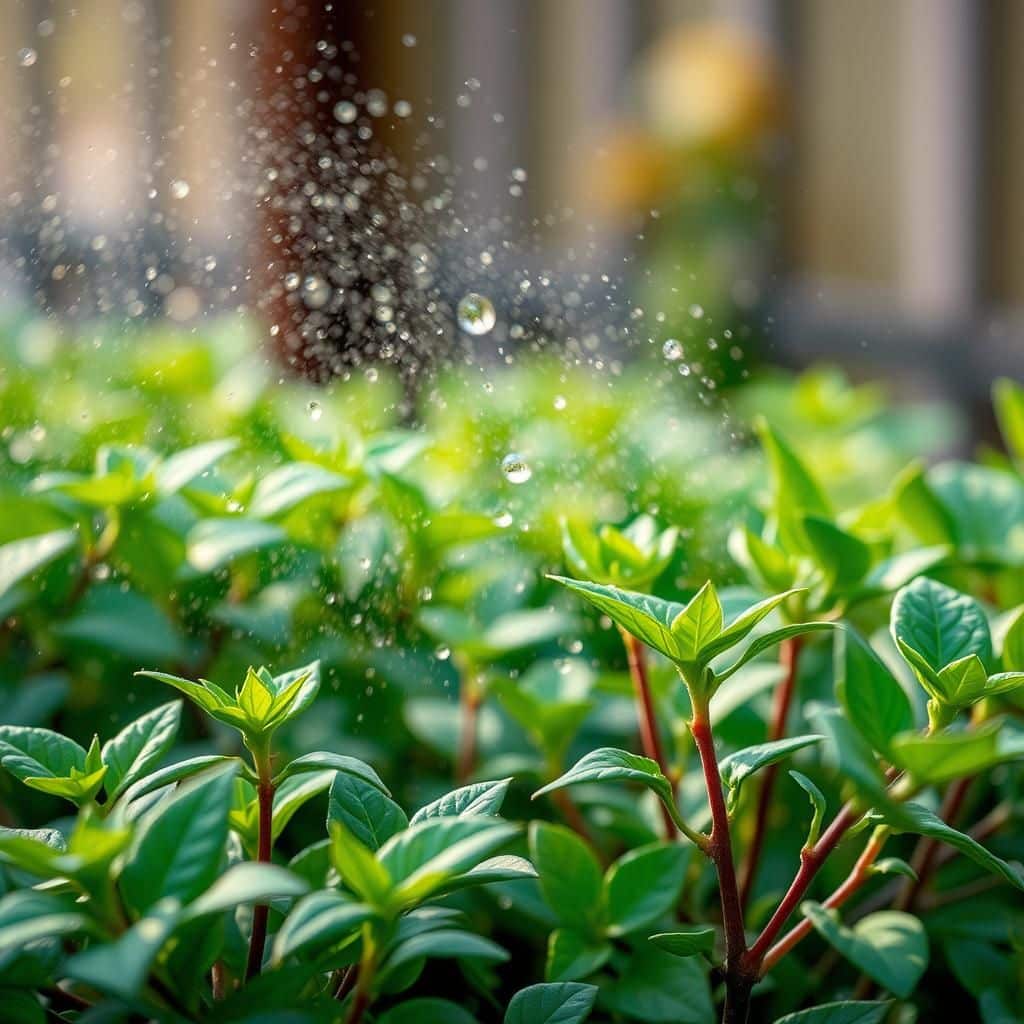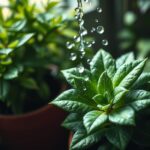Is it better to water in the morning or Evening? Discover the Best Time for Optimal Plant Growth

Watering plants is a fundamental aspect of gardening that greatly influences their growth and health. However, the timing of watering can significantly impact how effectively plants absorb moisture and nutrients. Many gardeners debate whether morning or evening is the optimal time to water their plants. This article explores the advantages and disadvantages of both watering times, considering factors such as temperature, evaporation rates, and plant needs. By understanding the best time to hydrate your garden, you can enhance plant growth, maintain soil moisture, and ultimately achieve a thriving, vibrant landscape. Discover the best practices to ensure your plants flourish.
Is it Better to Water in the Morning or Evening?
Watering plants in the morning is generally considered more effective than doing so in the evening, primarily because it allows the water to be absorbed efficiently before the sun heats up the ground. Morning watering helps prevent diseases, as the water that remains on the leaves during the cooler hours evaporates as temperatures rise, reducing the chances of fungal infections. Additionally, plants have an increased ability to take up nutrients from the soil during the daytime, leading to healthier growth and resilience. In contrast, evening watering can leave the plants damp overnight, which promotes humidity and can lead to various pests and diseases. Consequently, the time of day significantly impacts the overall health and vigor of the plants.
Benefits of Watering in the Morning
Watering in the morning offers several advantages that contribute to plant health. The cooler temperatures of the morning allow for better absorption of water, ensuring that plants receive adequate moisture before the heat of the day. Furthermore, morning watering helps to minimize evaporation losses, making the process more efficient. Additionally, this practice allows for excess moisture on the leaves to dry out as the sun rises, which lowers the risk of fungal diseases that can thrive in humid conditions caused by evening watering.
Disadvantages of Watering in the Evening
While watering in the evening may seem convenient, it can pose several disadvantages. The main issue is that water remains on the foliage overnight, creating a moist environment that can encourage the growth of mold, mildew, and other fungal diseases. This increase in humidity can weaken plants over time, making them more susceptible to various pests. Additionally, watering in the evening may lead to inefficient water use, as faster evaporation during the day can result in less moisture available to the plants when they need it the most.
Ideal Watering Schedule for Different Types of Plants
Different types of plants have varying needs that can influence the ideal watering schedule. Typically, vegetables and flowering plants benefit greatly from morning watering, as they thrive with consistent moisture throughout the day. Conversely, drought-tolerant species may require less frequent watering, and evening applications might be acceptable for those that can tolerate high humidity levels. Understanding the specific needs of your plants helps in crafting a suitable watering regime, ensuring their growth and health are optimized.
See also:
Impact of Climate on Watering Times
The climate in which you live plays a crucial role in determining the best time for watering. In hotter and drier climates, morning watering is essential to minimize evaporation losses and provide necessary moisture during peak temperatures. In contrast, areas with cooler and humid climates might allow for more flexibility in watering times. However, it is still advisable to avoid evening watering in most cases due to potential disease risks. Observing how the local climate affects your plants can lead to more informed decisions regarding watering habits.
Watering Techniques: Spray vs. Drip
The method of watering is just as important as when to water. Spray watering can lead to significant evaporation, especially if done during the warmer parts of the day. In contrast, a drip irrigation system delivers water directly to the soil near the plant’s roots, reducing evaporation and ensuring that moisture reaches the target areas. Regardless of the time, using effective watering techniques can maximize water use efficiency and minimize waste, allowing plants to thrive in their environment.
| Morning Watering | Evening Watering |
|---|---|
| Better absorption in cooler temperatures | Higher risk of fungal growth |
| Reduced evaporation losses | Water may linger on leaves overnight |
| Lower disease risks | Potential exposure to pests |
| Supports nutrient uptake | Can weaken plant health over time |
The Science Behind Plant Watering Timing
The debate over whether to water plants in the morning or evening hinges on various factors, including temperature, humidity, and plant type. Watering in the morning is generally favored because it allows plants to absorb moisture before the heat of the day evaporates much of it. This timing also promotes dew formation, which can further hydrate the plants. In contrast, watering in the evening can lead to prolonged moisture on foliage, increasing the risk of fungal diseases due to the cooler temperatures and higher humidity at night. Ultimately, understanding these factors can help gardeners make informed decisions that promote optimal plant growth.
Advantages of Morning Watering
Watering in the morning offers several advantages, such as reducing evaporation rates associated with daytime heat. By delivering moisture early, plants can uptake needed water throughout the day, leading to more efficient use of resources. Additionally, morning watering helps avoid fungal diseases that can thrive in moist, humid conditions typical of evening watering.
Disadvantages of Evening Watering
While evening watering may seem convenient, it has notable disadvantages. The onset of cool temperatures can prevent water from evaporating quickly, leaving plant foliage damp overnight. This persistent moisture can create an environment conducive to the growth of molds and fungi, which can significantly stress plants and reduce their overall health.
See also:
Soil Absorption Rates
The absorption rates of soil can vary based on the time of day when watering occurs. In the morning, cooler soil temperatures promote better water infiltration, allowing roots to absorb moisture more effectively. In contrast, watering in the late afternoon or evening can result in slower absorption due to cooler temperatures and pre-existing moisture levels in the soil, potentially leading to water runoff or *waterlogged* conditions.
Impact of Weather Conditions
Weather conditions play a crucial role in determining the best time for watering. On hot, windy days, watering in the morning can be beneficial as it helps plants conserve moisture throughout the day. High humidity levels in the evening, on the other hand, can lead to swampy conditions if watering is continued at that time. Thus, considering local weather patterns is essential to effective garden management.
Different Plant Needs
Different plants have varying water requirements and responses to watering times. For example, heat-tolerant plants may thrive with morning watering as they use moisture efficiently throughout the day, while shade-loving species may be more resilient with evening watering, as they experience less heat stress. Understanding specific plant needs can guide gardeners in making the most beneficial watering choices.
Questions from Our Readers
Is it better to water plants in the morning or evening?
Watering plants in the morning is generally considered better because it allows the water to soak into the soil and reach the roots before the heat of the day begins. This practice also reduces the chances of evaporation, ensuring that your plants receive the necessary moisture.
What are the benefits of watering in the morning?
Watering in the morning helps to minimize disease risk since the leaves have time to dry during the day, reducing the likelihood of fungal infections. Additionally, it promotes healthy growth by ensuring that plants are adequately hydrated during the most active times of their growth cycle.
See also:
Can watering in the evening be harmful?
Watering in the evening can lead to prolonged leaf wetness, which may increase the risk of developing fungal diseases. If the temperature drops significantly at night, the excess moisture can remain on the foliage, creating an ideal environment for pathogens.
Are there any exceptions to watering in the morning?
Yes, in very hot climates or during periods of drought, it might be necessary to water in the evening to prevent plants from wilting during the hottest parts of the day. However, it's essential to monitor the soil moisture and ensure it doesn’t stay waterlogged overnight, which can cause root rot and other issues.

If you want to read more articles like Is it better to water in the morning or Evening? Discover the Best Time for Optimal Plant Growth, we recommend you check out our Plants category.
Leave a Reply
Related Articles